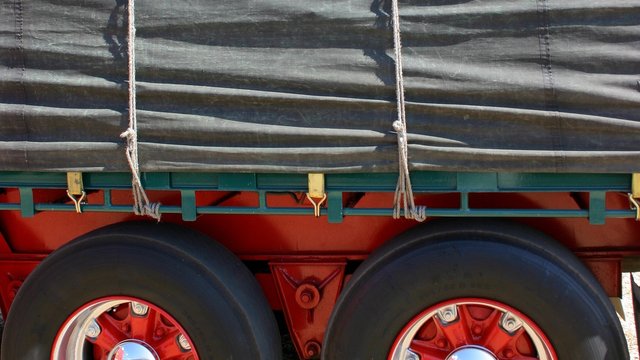Using Truck Tarps to Prevent Theft and Vandalism During Transit
Introduction
In the fast-moving world of freight and logistics, protecting cargo during transit is just as important as delivering it on time. While many truckers focus on securing loads with tie-downs and straps, truck tarps play a crucial role in deterring theft and vandalism. From concealing valuable freight to reinforcing load security, truck tarps are more than just covers—they’re an essential line of defense.
Whether you're hauling construction materials, consumer goods, or equipment, a properly chosen and applied tarp can make all the difference in keeping your cargo safe from unwanted attention. This blog explores how truck tarps can be used strategically to prevent theft and vandalism on the road and at rest stops.
1. Concealing Cargo from View
One of the simplest and most effective ways to deter theft is by making it difficult for would-be thieves to see what you’re hauling. A covered load draws less attention than an open truck bed loaded with valuable materials.
Thieves are more likely to target exposed or clearly identifiable goods—like electronics, tools, or metals. When your cargo is hidden beneath a non-transparent tarp, it adds uncertainty. Potential criminals can't tell what's inside or if it's worth the risk. This added layer of mystery helps deter opportunistic theft, especially at crowded rest areas, truck stops, or overnight parking zones.
2. Making Unauthorized Access More Difficult
While a tarp won’t stop a determined criminal, it can certainly slow them down and complicate the process. Thieves are often looking for quick, easy targets. A securely fastened heavy-duty tarp, especially one with reinforced edges, tight bungee cords, and locking systems, becomes an obstacle.
The more effort it takes to access your cargo, the more likely a thief is to walk away. In many cases, just the sight of a professionally secured tarp suggests that the trucker is alert, prepared, and possibly monitoring the load. A tarp acts as both a physical and psychological barrier to theft.
3. Protecting Cargo from Vandalism and Tampering
In addition to theft, vandalism is a real concern for truckers—especially in unsecured areas. Vandals may tamper with straps, spray graffiti, or even damage the load just for the sake of causing trouble. A truck tarp provides a protective shield against these types of actions.
High-quality tarps made from thick, puncture-resistant materials act as a first line of defense. They help absorb or deflect sharp objects and reduce direct access to cargo. In cases of environmental activism or protest-driven vandalism, covering company-branded or controversial goods with a neutral tarp can also reduce visibility and potential targeting.
4. Using Tamper-Evident and Lockable Tarp Systems
Some modern tarp systems are designed with built-in tamper-evident features. These include locking mechanisms, zippered enclosures, or strap loops that can be secured with padlocks. If someone tries to open or remove the tarp, it becomes obvious—giving drivers and receivers a clear signal that something may have gone wrong.
Additionally, many companies now opt for custom tarp configurations that integrate security cables or tracking technology. GPS-enabled cargo monitoring systems can alert operators if the tarp is removed or tampered with during transit.
Incorporating these smart security measures with your tarp system helps build a comprehensive theft-prevention strategy, especially when transporting high-value or sensitive freight.
5. Improving Load Stability and Road Safety
Beyond deterring theft and vandalism, properly used tarps improve load security, which is a key part of minimizing risk. A tightly tarped load prevents items from shifting or falling out, making it less likely that you’ll need to stop, adjust, or resecure—moments when your cargo is most vulnerable to interference.
A secure tarp system also helps avoid attention from law enforcement, who may stop trucks with loose or flapping covers due to safety concerns. Avoiding these stops means less downtime and reduced exposure, which translates to safer, smoother deliveries.
Keeping your cargo fully secured and covered also builds trust with clients who expect their shipments to arrive safely and undisturbed.
Conclusion
Truck tarps do much more than shield cargo from the elements—they’re a key component in defending against theft, vandalism, and tampering. From concealing your load and complicating unauthorized access to integrating lockable systems and enhancing road safety, a good tarp is a smart investment in security.
With cargo theft and vandalism costing the trucking industry millions each year, taking proactive steps to protect your freight is essential. A properly secured truck tarp sends a strong message: this load is protected, this driver is prepared, and this business is serious about safety.
By incorporating tarp-based security practices into your operations, you’re not just safeguarding cargo—you’re protecting your business reputation, client relationships, and bottom line.
